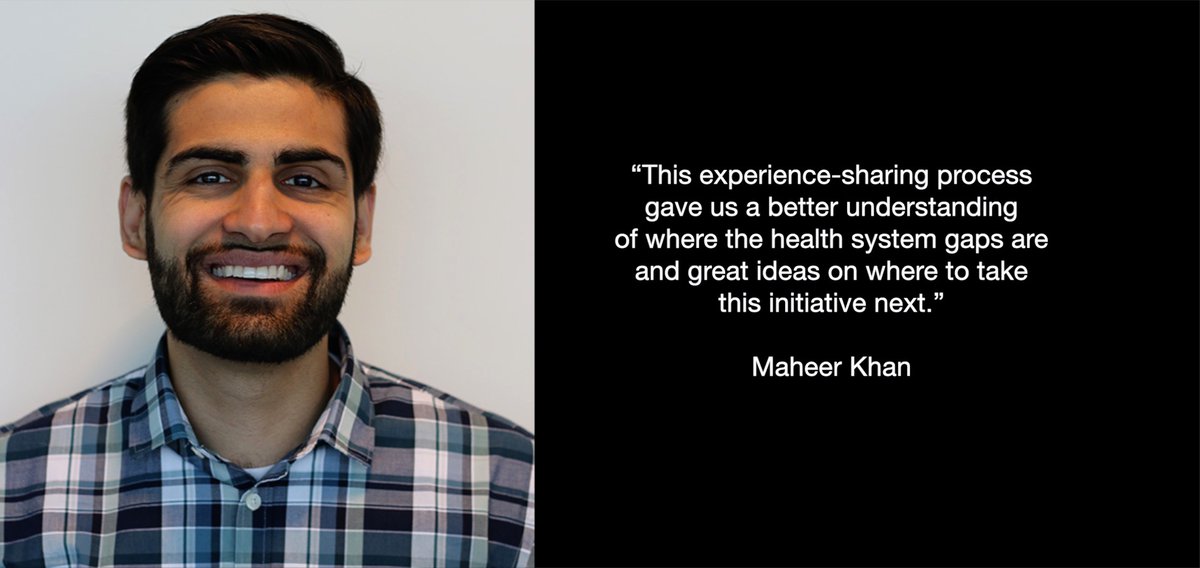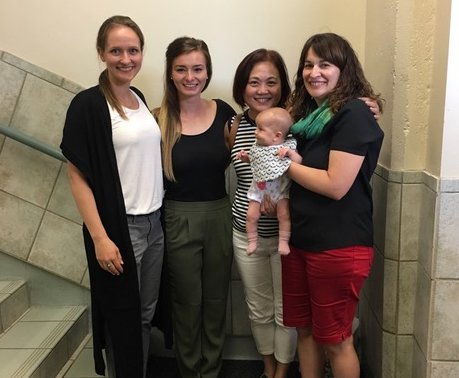Improving health for immigrant women by developing community health care partnerships
It took an Emerging Leaders in Health Promotion project to bridge a gap that had stubbornly persisted in health care service delivery to refugee and immigrant women, despite the well-intentioned and collaborative partnership of the Multicultural Health Brokers Cooperative and the Royal Alexandra Hospital’s Urogynecology Clinic.
For almost three years prior to the start of the Raising Awareness of Pelvic Floor Disorders Among Refugee and Immigrant Women Through Cultural Health Brokers ELiHP project in 2018, the MCHB and the Urogynecology Clinic had been working in partnership to improve MHBCs’ clients’ access to pelvic floor care.
Knowledge translation = knowledge transfer
One of the biggest obstacles to success that this train-the-trainer and knowledge translation project addressed was the Cultural Health Broker’s lack of specific knowledge of pelvic floor disorders, and the lack of training in techniques for engaging with patients who may be suffering from PFDs, yet don’t recognize the symptoms or realize that treatments are available.
Already serving as a vital and invaluable link to maternal and infant health and well-being services (pre-, peri- and post-natal) for members of immigrant and refugee communities in Edmonton, the 41 community health workers who received the ELiHP project training in the subject of PFDs (awareness, screening and management) reported a pre/post-workshop increase of 20% in their understanding of PFDs.

Moreso, notes Maheer Khan, one of three project leads, the knowledge translation – health care system to CHBs – also became a case of knowledge transfer, as the CHBs provided the workshop leaders, facilitators and presenters with the important cultural perspectives of their patients.
With a training roster of health care experts including physicians, nurse continent advisors and physiotherapists, “the workshops were a great opportunity to translate knowledge from the health care system to the CHB,” says Maheer.
“The brokers were passionate about the topic and were motivated to learn more about PFD in order to better address the difficulties that their patients face in the community,” he continues. “This experience-sharing process gave us a better understanding of where the health system gaps are and great ideas on where to take this initiative next.”
Uncovering a debilitating disorder
Even before they held their first of two CHB training workshops, project mentor Dr. Annick Poirier (Clinical Lecturer, Urogynecology, Royal Alexandra Hospital) and the team of project leads (medical students Sarah Kent, Victoria Elliot and Maheer) knew of the effect of PFDs on the physical and mental health of millions of women world-wide, and that while conservative and surgical treatments exist, women often fail to seek help for these debilitating disorders that can cause urinary and fecal incontinence, pelvic organ prolapse, pelvic pain and fistulas.
“A lack of knowledge of PFD symptoms, as well as available treatments, is a major barrier to women accessing care for PFD,” Maheer explains, adding that research in the United States has shown that these knowledge deficits are significantly greater among non-white women. Additional research conducted locally by Dr. Poirier and Sarah was consistent, showing that immigrant and refugee women in Edmonton have less awareness of PFD and less access to treatment.
“We wanted to provide training on PFD to cultural health brokers (including developing and providing access to culturally relevant, evidence-based resources) for purposes of raising awareness and care-seeking behavior for PFDs among refugee and immigrant women,” says Victoria, of their project goal. “With the end result of potentially decreasing the associated physical, psychosocial and economic burdens associated with these disorders.”

Student-led, expertly mentored
While still third-year medical students in 2018 when they undertook their ELiHP project, Victoria, Sarah and Maheer developed the workshop design and content in collaboration with the Urogynecology Clinic, and were actively involved in the workshop facilitation and evaluation. It was Dr. Poirier’s long-standing relationship with the CHBs and her work with the Urogynecology Clinic that formed the basis of the program, as well as her abundant experience with PFD prevention and treatment.
“With her interest in improving awareness of PFD in hard-to-reach populations, such as immigrant and refugee women, Dr. Poirier was the ideal supervisor for our project,” says Sarah. “Her background and current research in the area were invaluable to our team, and her enthusiasm and passion for the topic kept the team motivated.”
Experience to carry forward
Appreciative of the opportunity to initiate, design and implement a project to bring attention to such a common, yet neglected, condition, the students are also grateful for the relationships and experience developed as a result of the collaboration with the MCBH.
In their final report, the project leads note that “working with the MCBH further developed our advocacy skills because this organization is a key health care resource for newcomers in Edmonton,” adding that the design of training materials and the translation of clinical and scientific concepts into lay terms “will undoubtedly help us as clinicians in the future when we will need to communicate cross-culturally with patients from all walks of life.”
About the ELiHP grant program
The Emerging Leaders in Health Promotion grant program provides funding to help medical students and resident physicians conceive and implement health promotion projects in support of the development of their CanMEDS/FM core competencies, particularly health advocacy.
Sponsored by the Alberta Medical Association, MD Financial Management, the Canadian Medical Association and its subsidiary, Joule, ELiHP projects facilitate the growth of physician leadership and advocacy skills in a mentored environment, while enhancing the well-being of the general Alberta population through education, advocacy and innovative care.
Banner photo credit: Marvin Polis

